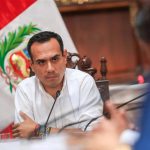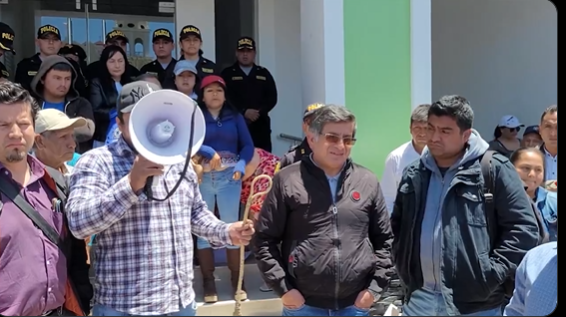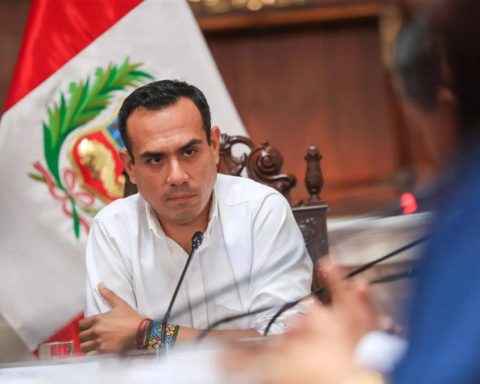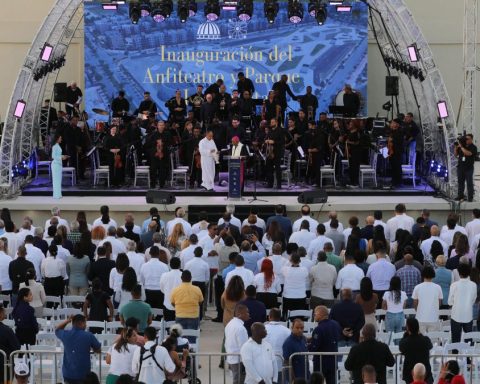EITHER
It happened in the early hours of yesterday. The re-election of Rosario Piedra Ibarra as president of the CNDH confirmed that the current government has no intention of putting the victims at the center and straightening the path in terms of human rights in the country. Thus, the opportunities that we identified in this space two weeks ago have been left behind.
This reelection must be included in the process initiated in the previous six-year term to weaken the framework of institutional counterweights that guarantee the effective democratic balance essential for the political health of the country. This process was first operated discursively through repeated disqualifications and negative accusations against the existence of these organizations, questioning their legitimacy and denigrating their importance as guarantors of the country’s democratic conditions; Then, a pattern of budget cuts aimed at autonomous constitutional bodies was followed, while questionable people were appointed as head of these bodies, as was the case with the first election of Rosario Piedra as head of the CNDH, today. ratified.
With this, the Morenista current, whose trajectory and popularity were forged in the course of a historical struggle for democratic consolidation and the human rights agenda in Mexico, seems to have forgotten – already installed in power – its ideological matrix, and in In just six years it has managed to reverse numerous institutional advances that cost decades of construction effort achieved through the mobilization of civil society and the political struggle of many of those who today make up the majority bloc.
The current political opposition, of course, is not exempt from responsibility, since when it held power, it consented to and benefited from the opacity and partiality to which these organizations at times lent themselves; and now in a role of weak political counterweight, with little consistency and moral authority, which is evidence of many of its recent decisions and strategies, clearly lacking relevance to our social context. Today we have in the country a system of checks and balances in crisis, not only because of the qualified majority that we see in the chambers, but because of the blurred and not very strategic minority that has not known how to configure itself and exercise its role as an opposition representing the minorities. .
Piedra’s reelection also means a great opportunity missed by the new administration to distance itself from the errors of the last six-year term and to impose its own agenda on human rights.
In previous editions we had identified the weakening of the CNDH during Piedra’s administration. Returning to relevant figures, we said that, of the 132 recommendations for serious human rights violations issued during López Obrador’s six-year term, only 17 addressed cases that occurred after December 1, 2018. Furthermore, while the main issue addressed by the recommendations on events that occurred in previous six-year terms was security and justice, most of the recommendations on events that occurred during López Obrador’s six-year term addressed violations of the right to health, systematically ignoring the violations committed by the National Guard and the armed forces.
In the same sense, the CNDH led by Piedra openly supported the military strengthening of the National Guard and the weakening of constitutionally autonomous organizations. This political alignment, which a few years ago caused the resignation of all the members of the CNDH Advisory Council, is what today supports its re-election, affecting above all the victims, the main recipients of the existence of an autonomous commission to safeguard and promote human rights in the country, and to which the commission has turned its back.
It is an expression of democratic regression towards a past that we believed we had overcome, and to which we are now making a clear return. In the six-year term that is beginning, the prevailing winds seem to be those of the weakening of autonomous organizations and the human rights agenda will continue to be instrumentalized in favor of a discourse that denies any violation of rights in the present.
We will not stop insisting that, in a country besieged by violence and with overwhelming rates of impunity, the centrality of the victims is essential to amend the path and build an institutional framework that effectively takes care of the dignity of people. The path to peace and democracy goes through social policy, but also through the strengthening of democratic, representative and justice institutions, as well as the system of checks and balances of which autonomous organizations are key. History shows that only in this way is it possible to effectively address social conflict and prevailing injustice, with an eye toward social reconciliation.
We will have Rosario Piedra at the head of the CNDH for five more years. For that it is already too late, but there is still room to amend the path and honor the struggle of Rosario Ibarra de Piedra and so many victims who have built with their struggle the bodies that today protect human rights in the country. The fight for human rights will continue.
















